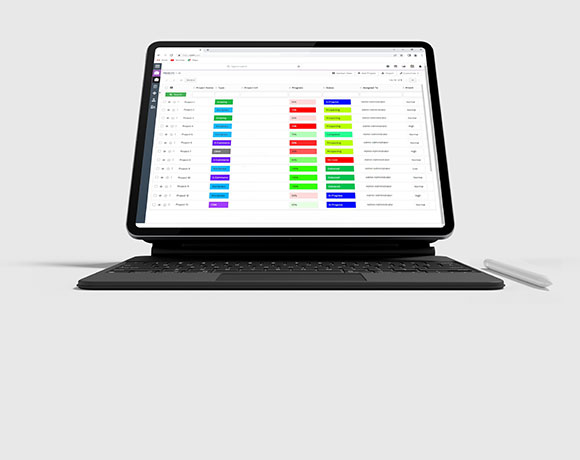Introduction:
The Crucial Role of CRM in Today’s Business Landscape
In a competitive business environment, CRM for business is at the heart of success. It’s not just about offering a great product or service anymore; it’s about understanding your customers, anticipating their needs, and building lasting relationships. That’s where Customer Relationship Management (CRM) comes into play.
In this comprehensive guide, we’ll delve deep into the world of CRM and show you how to master it for the benefit of your business. Whether you’re a small startup or a global corporation, CRM can transform the way you operate, help you make informed decisions, and drive growth.
1: Demystifying CRM
1.1 Defining the CRM for business
CRM, or Customer Relationship Management, is more than just a software solution; it’s a strategic approach to managing customer interactions. At its core, CRM is about understanding your customers’ needs, preferences, and behaviors to deliver exceptional experiences. It’s about turning data into insights and using those insights to drive better decision-making.
But CRM isn’t just for the customer-facing teams. It impacts every aspect of your business, from marketing and sales to customer support and product development. CRM empowers businesses to streamline operations, improve communication, and ultimately, boost profitability.
1.2 Target Audience
CRM isn’t limited to any particular industry or business size. In fact, it’s a versatile tool that can benefit a wide range of organizations. From e-commerce businesses looking to personalize their marketing efforts to healthcare providers aiming to enhance patient care, CRM has something to offer everyone.
Industries that rely heavily on customer relationships, such as retail, finance, and real estate, and all types of businesses can benefit immensely from CRM. Even B2B companies can leverage CRM to manage their interactions with clients and prospects effectively.
2: The Crucial Role of CRM

2.1 Why CRM Matters
CRM matters because it’s the key to unlocking the full potential of your customer relationships. By centralizing customer data, you gain a 360-degree view of each customer. This enables you to tailor your interactions, anticipate their needs, and provide personalized solutions.
Real-life success stories abound. Companies like Amazon, Apple, and Salesforce have used CRM to not only understand their customers but also to innovate and disrupt industries. These companies have shown that CRM is not just a tool but a philosophy that can transform your business.
2.2 The Cost of Ignoring CRM
The cost of ignoring CRM can be staggering. Without CRM, you risk losing valuable insights, leading to missed opportunities and revenue losses. Inefficient processes, disjointed communication, and a lack of data-driven decision-making can cripple your business.
CRM directly impacts your bottom line. Studies have shown that companies with effective CRM strategies achieve, on average, a 32% increase in sales. Ignoring CRM means leaving money on the table and falling behind competitors who embrace it.
3: Understanding CRM Systems
3.1 The Functionality of CRM
CRM systems are designed to streamline customer-related processes. They can capture and store customer data, track interactions, manage leads and opportunities, automate marketing campaigns, and provide valuable analytics. In essence, CRM systems help you manage every aspect of your customer relationships in one place.
But CRM is not just about managing data; it’s about turning that data into actionable insights. It empowers you to understand your customers’ behavior, preferences, and pain points, allowing you to make data-driven decisions that drive business growth.
3.2 Enhancing Business with CRM
The benefits of CRM go far beyond simple organization. When implemented effectively, CRM systems can revolutionize your business in practical ways. They enable you to:
Improve customer service: CRM provides a 360-degree view of each customer, allowing you to offer personalized support and resolve issues faster.
Boost sales and marketing efforts: CRM helps you target the right audience with the right message at the right time, increasing conversion rates and revenue.
Streamline operations: CRM automates repetitive tasks, reduces manual data entry, and enhances workflow efficiency.
Foster collaboration: CRM facilitates communication and data sharing across departments, breaking down silos and promoting teamwork.
3.3 Seven Key Benefits of CRM
Let’s take a closer look at seven key benefits of CRM:
Improved Customer Relationships: CRM helps you build stronger, more personalized relationships with your customers, leading to increased loyalty and retention.
Enhanced Marketing ROI: With CRM, you can segment your audience, track campaign performance, and refine your marketing strategies for better results.
Increased Sales: CRM provides sales teams with the tools and insights they need to close deals more effectively and efficiently.
Better Customer Service: CRM enables faster issue resolution, proactive support, and a more satisfying customer experience.
Data-Driven Decisions: Make informed decisions based on real-time data and analytics, rather than guesswork.
Streamlined Processes: Automate routine tasks and streamline operations to free up valuable time and resources.
Scalability: As your business grows, CRM systems can scale with you, adapting to your evolving needs.
4: Cloud-based CRM for business

4.1 The Power of Cloud-Based CRM
Cloud-based CRM is a game-changer for businesses of all sizes. It’s a CRM solution hosted in the cloud, which means you can access it from anywhere with an internet connection. This level of accessibility and flexibility is a significant advantage, especially in today’s remote work-friendly environment.
Scalability is another key benefit of cloud-based CRM. Whether you’re a small business looking to expand or a large enterprise managing global operations, cloud-based CRM can grow with you. You can easily add or reduce users and customize the system to meet your specific needs.
4.2 Remote Work Revolution
The COVID-19 pandemic accelerated the shift toward remote work, and cloud-based CRM played a pivotal role in enabling this transition. With remote access to CRM tools, employees can collaborate seamlessly, regardless of their physical location.
Cloud-based CRM enhances productivity by providing real-time updates, automated workflows, and secure data access. It ensures that remote teams can stay connected, share information, and serve customers effectively.
4.3 Cost Savings
Implementing and maintaining traditional, on-premises CRM systems can be costly. You need to invest in hardware, software licenses, and ongoing IT support. In contrast, cloud-based CRM offers cost savings in several ways:
Lower initial costs: You don’t need to purchase expensive hardware or software licenses. Instead, you pay a subscription fee based on your usage.
Reduced IT overhead: Cloud-based CRM providers handle maintenance, updates, and security, saving you the hassle and cost of managing these aspects in-house.
Scalability: You only pay for the resources you need, making it cost-effective for businesses of all sizes.
4.4 Features of Cloud-Based CRM
Cloud-based CRM solutions offer a wide range of features that make them indispensable for businesses. Some of the key features include:
Integration: Seamlessly integrate your CRM with other tools and systems, such as email marketing platforms, e-commerce platforms, and analytics tools.
Security: Cloud-based CRM providers invest heavily in security measures to protect your data from threats and breaches.
Customization: Tailor your CRM to your specific business needs with customizable fields, workflows, and reporting.
Mobile Accessibility: Access your CRM on the go through mobile apps, ensuring that your team can stay connected and productive from anywhere.
Real-Time Updates:
Stay informed with real-time updates on customer interactions, sales, and marketing campaigns. This ensures that your team always has access to the latest information, enabling them to make informed decisions promptly.
Data Analytics: Leverage built-in analytics and reporting tools to gain insights into customer behavior, sales performance, and marketing ROI. Use these insights to refine your strategies and drive growth.
Automation: Automate repetitive tasks, such as lead assignments, follow-up emails, and data entry, to increase efficiency and reduce manual workload.
Scalability: Cloud-based CRM systems can scale with your business as it grows. You can easily add new users, features, or modules to accommodate your evolving needs.
Conclusion: Embracing CRM for Long-Term Business Success
In this comprehensive guide, we’ve demystified CRM and explored its crucial role in today’s business landscape. CRM is not just a software solution; it’s a strategic approach that empowers businesses to build stronger customer relationships, make data-driven decisions, and drive growth.
By understanding the significance of CRM and the cost of ignoring it, you can take the first steps toward improving your business’s bottom line. Implementing CRM systems can help you streamline operations, enhance collaboration, and boost sales and marketing efforts.



